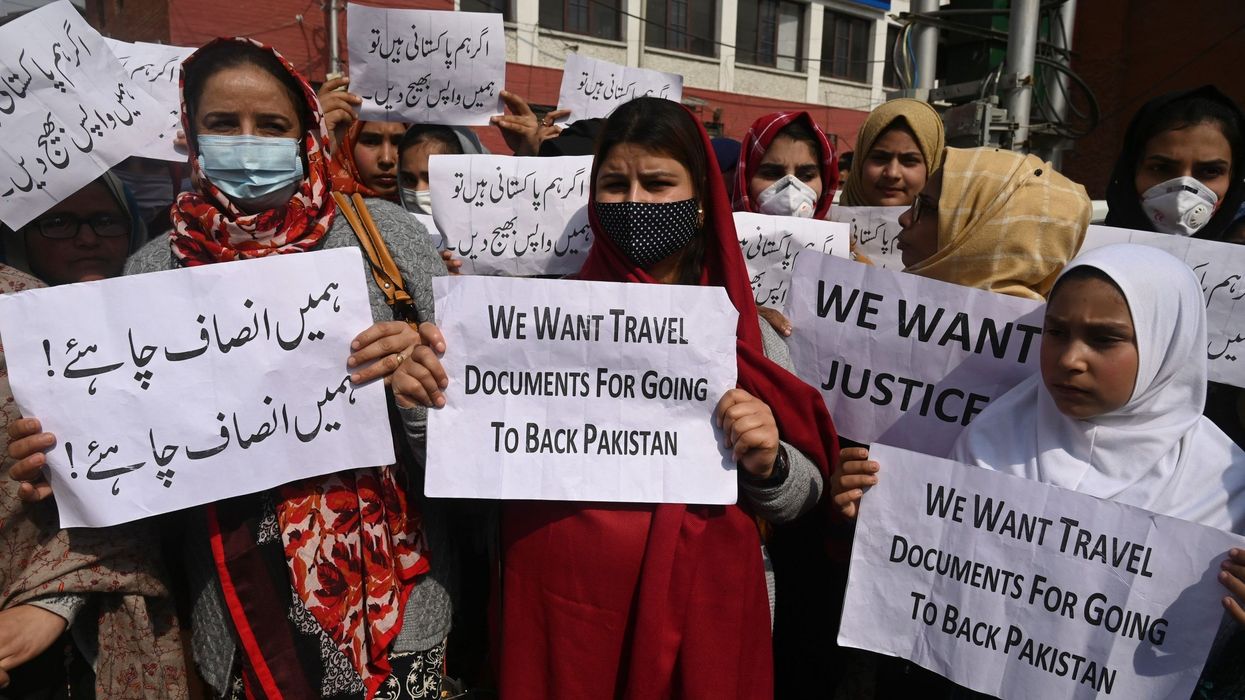At least three Indian states are denying passports and government jobs to people because of their social media posts or participation in protests, human rights activists said.
In a move that could jeopardise the futures of tens of thousands of vocal young Indians, authorities in Jammu and Kashmir, Bihar and Uttarakhand have issued such orders, as India clamps down on dissent online and on the ground.
"It is a reprehensible move - the police have no right to decide whether any post on social media is anti-national or not," said Nasir Khuehami, a student leader in the restive region of Jammu and Kashmir, enmeshed in turmoil for decades.
"The need of the hour is to not create more hassles in the path of thousands of Kashmiri youth who are now in jobs or studying. It will push the youth into further alienation," he told the Thomson Reuters Foundation.
Across Asia, lawmakers have introduced a slew of legislation for governments to access internet users' data and block so-called false news, which human rights groups say raises the risk of mass surveillance and free speech violations.
Social media is a key target, with Thailand banning "false messages" and news that causes panic, while Vietnam introduced guidelines that encourage people to "spread good stories about good people" and positive content about the country.
In India, WhatsApp went to court in May to oppose new rules that it said violate privacy rights by requiring social media firms to identify users to authorities, following government demands to remove posts critical of its handling of COVID-19.
Indian farmers protesting against new agricultural laws in February found that Twitter had blocked their social media accounts on the demands of the government on the grounds that users were posting content aiming to incite violence.
FEAR AND INSECURITY
Last month, police in Jammu and Kashmir issued a directive saying they would not issue security clearances for passports or government jobs to anyone with an "adverse police report", including for participating in protests.
Thousands of protesters were arrested and the internet was shut down in Muslim-majority Kashmir, claimed by both India and Pakistan, after India stripped its portion of the region of its autonomy and statehood in 2019.
Legal analyst Sheikh Showkat Hussain said he knew of many Kashmiris who had been denied passports or been fired from government jobs because of the rule, which could hurt thousands in the region, particularly young men.
"Without a passport, they cannot go abroad to study or work. And because the private sector is nearly non-existent, most are dependent on government jobs," said Hussain, principal at the Kashmir Law College.
"It has been the rule for many years, but the new order makes it explicit - and with advanced surveillance equipment now, it is easier for the police to track anyone. This creates fear and insecurity and denies them opportunity."
Manoj Kumar Dwivedi, a commissioner in Jammu and Kashmir, said the directive aims to ensure that individuals "with dubious character antecedents and conduct" are not employed by the government without the mandatory verification.
Earlier this year, police in the northern state of Uttarakhand said they would monitor social media posts and maintain a record of those that are "anti-national" or "anti-social", and reject passport applications accordingly.
"Whatever is said against the unity and integrity of India can be termed as anti-national," said Ashok Kumar, Uttarakhand's director general of police.
Similarly in Bihar, state police said participating in any kind of protest could result in clearances being denied for passports and government jobs.
"Such people have to be prepared for serious consequences," said Bihar's director general of police S.K. Singhal.
In India, police verification that passport applicants do not have a criminal record is a routine procedure.
But "unfettered social media monitoring" in order to access documents or jobs goes beyond the legal standard of "necessity and proportionality" that governs government intrusion into privacy rights, said Raman Jit Singh Chima of Access Now.
There is a "danger of creating a republic where police files and surveillance are maintained on all citizens and used to chill and intimidate them by controlling their movement," said Chima, a policy director at the digital rights firm.




